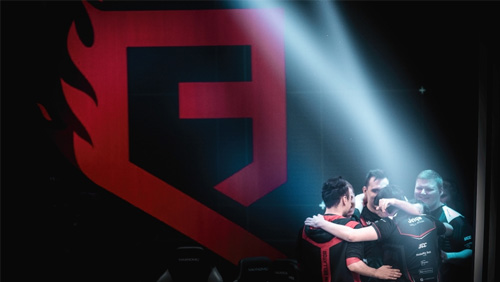As X-Bet partner with the Counter-Strike: Global Offensive outfit, Quantum Bellator Fire, Lee Davy wonders when the time will come that all esports athletes will be banned from betting on esports matches.
 I’ve only experienced the strange relationship between gambling companies and Premier League football teams once, but it was enough to show me that there was footwork to get right in that little waltz.
I’ve only experienced the strange relationship between gambling companies and Premier League football teams once, but it was enough to show me that there was footwork to get right in that little waltz.
partypoker invited me to Old Trafford to play in a poker tournament involving several Manchester United players as part of the bwin sponsorship arrangement.
I was 30-seconds away from interviewing my idol, Bryan Robson, when the United Press Officer handed me my list of questions, each one with a red line through it.
“What’s this?”
“You can’t ask Mr Robson those questions.”
“Why not?”
“We don’t want him to glorify gambling.
Robson was a lush, and I’m sure had a flutter or two during his time. The whole thing stank of hypocrisy. United was taking some serious money from bwin. They advertised the betting brand’s logo during matches. Why couldn’t the players talk about what is essentially a form of entertainment?
I’ve always assumed it’s because the demographics of a Premier League match ranges so broadly from five or six years of age to those parking their zimmer frames in the £10 per day car park.
So what then of esports?
Surely, as we inch ever closer to a technologically driven world, esports will one day rival, if not surpass Premier League football in popularity. Isn’t it more likely that our children will have posters of esports stars on their walls and not the likes of Bryan Robson?
X-Bet Ink Deal With Quantum Bellator Fire
Curacao licensed online gambling company, X-Bet has inked a deal to be the primary sponsors of the up and coming Counter-Strike: Global Offensive (CS: GO) outfit: Quantum Bellator Fire (QBF).
QBF began life as a group of friends having fun. Today, they are one of the emerging professional sides in the CIS competitions, notably Russia, where they seem to be kicking arse.
X-Bet is sponsoring an esports team for the first time, but it’s not their first rodeo in the esports industry. In the summer of 2017, X-Bet became the primary sponsor of the ProDotaCup, before terminating the contract in December due to ‘betting irregularities, match-fixing and collusion’.
Only this week, the Esports Integrity Coalition (ESIC), and joinDOTA banned a 22-year-old DOTA 2 professional after they discovered he had bet on his team to lose during a JoinDOTA League Season 12 Americas Division 1 match between Thunder Awaken and MORTY.
Learning From the Premier League
Yesterday, I wrote about the partnership between Zlatan Ibrahimovic and Bethard, and how the deal was likely possible because the giant Swede had left Manchester United to join LA Galaxy.
As I learned from my experience at Old Trafford, Premier League clubs are reluctant to market individual stars with gambling companies, while at the same time feeling quite relaxed about the relationship at a club level.
Professional footballers in England and Scotland are not allowed to bet on football matches of any nature thanks to stipulations created by the English and Scottish Football Associations. (FA & SFA).
In April of last year, the FA handed Joey Barton an 18-month ban after admitting betting on football matches. His sentence was reduced to five months after an appeal.
If esports athletes are to benefit from the clout that gambling companies provide (and vice versa), then one assumes the esports industry has to follow a similar pattern and make it a violation that carries a hefty penalty should professional esports athletes be caught betting on the outcome of esports matches.
Speaking at the time of the split from the ProDotaCup, X-Bet spokesperson, Russ Stevens, said that match-fixing not only causes financial loss to the operator but damages the relationship between the team and the esports fans.
I would go one further and say that it damages the integrity of the gambling and esports business as a whole.